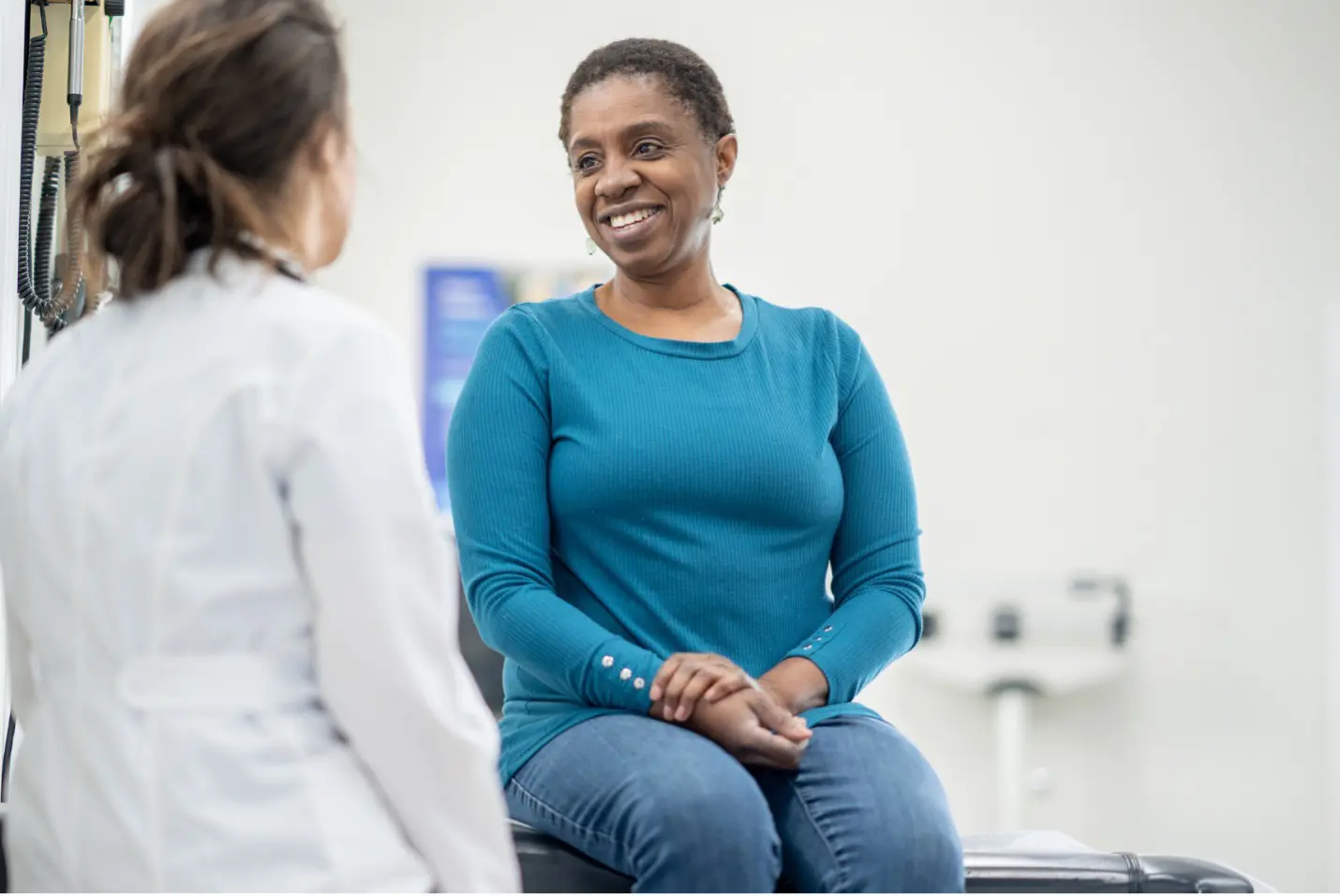What are clinical trials?
Clinical trials are research studies that involve people. Through clinical trials, doctors find new ways to improve treatments and the quality of life for people with disease.
Why are cancer clinical trials important?
{image_2}Cancer clinical trials contribute to medical knowledge and progress against cancer, thus improving patient care. Clinical trials are the only way new cancer treatments can be tested for success and safety before being made available to the public. The standard cancer treatments used today are based on previous clinical trial results.
What are the types of cancer clinical trials?
There are four different types of cancer clinical trials, which include:
- Treatment trials, which test new drugs, medical procedures, or combinations of treatments
- Prevention trials, which look for better ways to prevent diseases by either doing something (called action studies) like making lifestyle changes, or taking something (called agent studies) such as medicines, vitamins, or minerals
- Screening trials, which look for new ways to test for the presence of a disease or health condition early, when it may be more easily treated
- Quality of life trials, which explore ways to improve comfort and quality of life for cancer patients
What is a protocol?
A protocol is a study plan on which all clinical trials are based. The plan is carefully designed to protect the health of the participants as well as answer specific research questions. A protocol specifically outlines the purpose of the study as well as details such as who is eligible to participate, the study size, number of participants and describes the plan of care and collection of data. A study’s protocol is carefully developed and reviewed by the Principal Investigator and the sponsoring organization. It is then reviewed and approved by an Institutional Review Board (IRB) to ensure trial procedures are consistently carried out. This protocol is used by every doctor taking part in the study.
How are cancer clinical trials conducted?
Clinical trials are designed by physicians and researchers and are conducted according to strict scientific and ethical principles. Before the study begins, a protocol is developed describing what will be done in the study, how it will be conducted and why each part of the study is necessary. This research protocol is reviewed by third-party experts to make sure that study is conducted fairly and that patients are well-informed of their rights. Each study has eligibility criteria for who can or cannot participate in the study, which may include type of cancer, age, gender, medical history and current health status.
Do I have to participate in a clinical trial?
No. Your participation in a clinical trial is completely voluntary at all times. It is important to ask lots of questions and consider all your treatment options before you decide if taking part in a study is right for you.
What are the benefits of Participating in a clinical trial?
Access to promising new therapies not yet available outside the study. These therapies are being studied because doctors hope they will prove more effective or less toxic that the standard treatment.
Patients can play an active role in their cancer care by expanding their treatment options.
Patients in clinical trials are contributing to the greater knowledge of cancer that may help other cancer patients in the future.
What are some of the possible risks of participating in a clinical trial?
- Participants in randomized studies will not be able to choose the approach they receive.
- Health insurance and managed care providers may not cover all patient care costs in a study.
- New treatments may have unknown side effects or risks.
Who pays for clinical trials?
There are two types of costs associated with a clinical trial: patient care costs and research costs.
- Patient care costs are those costs related to treating your cancer, whether you are in a trial or receiving standard therapy. These costs are often covered by health insurance and usual copays and coinsurance would apply. Doctor visits, hospital stays, standard cancer treatment, lab tests, and imaging tests are considered patient care costs.
- Research costs are those related to taking part in the trial. Often these costs are not covered by health insurance, but are usually covered by the research trial’s sponsor. Study drugs as well as additional lab or imaging tests performed solely for the trial are examples of research costs.
When you take part in a clinical trial, you may have extra doctor visits that you would not have with standard treatment. During these visits your doctor carefully watches for side effects and your safety in the study. These extra visits can add costs for transportation and child care.
Will I continue to work with my primary healthcare provider while in a research trial?
Yes. Most clinical trials do not provide complete primary healthcare.
What are my rights during a clinical trial?
- The research team will discuss your rights, including your right to:
- Make a decision about participating
- Leave the study at any time
Before agreeing to take part in a trial, you have the right to:
- Learn about all your treatment options
- Learn all that is involved in the trial, including all details about treatment, tests, and possible risks and benefits
- Discuss the trial with the principal investigator and other members of the research team
- Both hear and read the information in language you can understand
Once I have decided to take part in the study, what is next?
After discussing the study with you, the research team will give you an informed consent form to read. The form includes written details about the information that was discussed with you and describes the privacy of your medical records. If you agree to take part in the study, you sign the form. But, even after you sign the consent form, you can leave the study at any time. You can always ask questions. And, as new information becomes available, the research team will inform you.
The latest breakthrough cancer therapies are available right in your hometown.
At Minnesota Oncology and Minnesota Oncology & Ridgeview Cancer & Infusion Center, we believe in clinical research to help bring the best new drugs, diagnostic tools, and treatment strategies to our patients every day. Individualized plans are tailored for each patient, reflecting national guidelines, and include the opportunity to participate in approved clinical studies sponsored by the National Cancer Institute through our participation in the Metro-Minnesota Community Oncology Research Consortium (MMCORC).
{image_1}As part of The US Oncology Network, one of the nation’s largest community-based cancer treatment and research networks, our physicians have participated in the FDA approval of more than 60 cancer-fighting drugs.
If you have any questions or need more information about research studies currently in progress, ask your clinical team or visit mnoncology.com.
Dr. Gada is a board-certified hematologist-oncologist at Minnesota Oncology & Ridgeview Cancer & Infusion Center in Chaska and Waconia. She has been named a Top Doctor by Mpls/St. Paul Magazine since 2016.
Sources:
https://www.cancer.gov/about-cancer/treatment/clinical-trials/paying
https://clinicaltrials.gov/ct2/about-studies/learn#Participating
https://www.nih.gov/health-information/nih-clinical-research-trials-you/basics
https://www.cancer.gov/about-cancer/treatment/clinical-trials/taking-part



